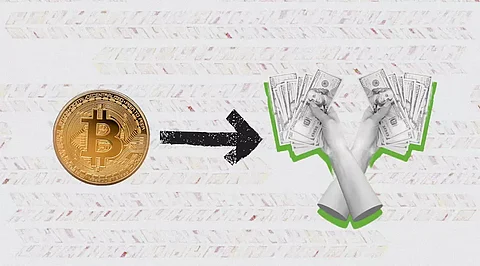

Cryptocurrency has emerged as a revolutionary digital asset class, gaining widespread popularity and recognition over the past decade. With the rise of cryptocurrencies like Bitcoin and Ethereum, many individuals have invested in these digital currencies with the hope of substantial returns on their investments. However, there comes a time when you might want to convert your digital assets into traditional cash. In this comprehensive guide, we will explore the various steps involved in converting cryptocurrency into cash.
The first step in converting cryptocurrency into cash is selecting a reputable cryptocurrency exchange platform. There are numerous exchanges available, each with its unique features, fees, and supported cryptocurrencies. Ensure that the exchange you choose aligns with your needs and geographical location. Some popular exchanges include Coinbase, Binance, Kraken, and Bitstamp.
To use a cryptocurrency exchange, you'll need to create an account and complete the verification process. This typically involves providing identification documents such as a driver's license or passport and linking your bank account. Completing the verification process is essential for security and regulatory compliance.
Once your exchange account is set up, you'll need to transfer your cryptocurrency to the exchange's wallet. Ensure that you select the correct wallet for the specific cryptocurrency you want to sell. You can transfer your digital assets from your private wallet to the exchange wallet using the wallet's deposit feature.
After your cryptocurrency is on the exchange, you can place a sell order. Choose the cryptocurrency you wish to sell and specify the amount you want to convert into cash. You can opt for different types of sell orders, such as market orders or limit orders, depending on your preferences and market conditions.
Once your sell order is executed, you'll receive the equivalent amount in your exchange account, typically in the form of the local fiat currency (e.g., USD, EUR, or GBP). Double-check the details of the transaction before confirming it, as cryptocurrency transactions are irreversible.
To access the cash, withdraw the funds from your exchange account to your linked bank account. This step may involve additional verification and may take a few days to process, depending on the exchange and your bank.
It's crucial to be aware of the tax implications when converting cryptocurrency into cash. In many countries, these transactions are subject to capital gains taxes. Keep detailed records of your cryptocurrency transactions, as you may need them for tax reporting purposes.
Cryptocurrency exchanges typically charge fees for trading and withdrawals. These fees can vary significantly between exchanges and depend on factors like the trading volume and the payment method you choose. Ensure that you understand the fee structure of the exchange you're using to avoid unexpected costs.
Besides using cryptocurrency exchanges, you can explore alternative methods to convert cryptocurrency into cash. Peer-to-peer platforms, Bitcoin ATMs, and cryptocurrency debit cards are some options to consider.
Therefore, converting cryptocurrency into cash is a straightforward process when you follow the right steps and use reputable exchanges. However, it's essential to stay informed about the latest regulations and tax laws related to cryptocurrency in your country. With careful planning and adherence to legal requirements, you can successfully turn your digital assets into traditional cash when needed. Always prioritize security and choose trustworthy platforms to ensure a smooth and secure conversion process.
Join our WhatsApp Channel to get the latest news, exclusives and videos on WhatsApp
_____________
Disclaimer: Analytics Insight does not provide financial advice or guidance. Also note that the cryptocurrencies mentioned/listed on the website could potentially be scams, i.e. designed to induce you to invest financial resources that may be lost forever and not be recoverable once investments are made. You are responsible for conducting your own research (DYOR) before making any investments. Read more here.
